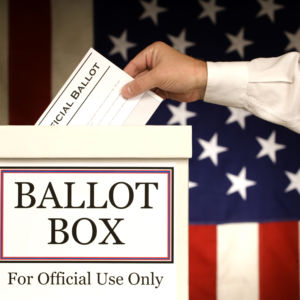The United States has historically been a nation divided. From the debate over slavery and the Civil War to the 2020 election and the Jan. 6, 2021 attack on the U.S. Capitol, political divisions and societal strife have always been omnipresent.
This year is different.
The animosity remains vitriolic as ever, but the antagonism isn’t directed just at politicians and party leaders. It’s reaching individual voters, election workers and concerned citizens.
Reuters reports that during the 2022 midterm elections, two in five voters worried about intimidation at the polls. An analysis by the Cato Institute found that 62 percent of Americans self-censor their political views, afraid to share them publicly for fear of retribution.
Nearly half the country expects political violence over the coming presidential election results. The Army expressed concerns about an elevated risk of “civil war” following the vote.
These worries may or may not be warranted, but they are undoubtedly genuine. Even if political violence fails to manifest after the 2024 election, the fear of political violence could have a chilling effect on voter turnout.
Voters are experiencing a proverbial tug of war. On the one hand, they want to show up at the polls and make their voices heard. On the other hand, they want to preserve their privacy and prioritize their safety.
Registering to vote is a monumental moment for many people. It’s the opportunity to make their voices heard and have their values enacted. However, it also requires them to hand over highly sensitive personal information to states, including their names, addresses, dates of birth, Social Security numbers, party affiliation and more.
States don’t just store this information. It’s often distributed to third parties, exposing voters to identity theft, stalking, election manipulation and other risks. Moreover, while voting is private and conducted in booths away from prying eyes, voting records are public records in many states. This subjects voters to potential harassment or even retributive political violence.
Specialty websites and data brokers expose personal and political information, allowing easy access to comprehensive individual profiles and voting records. This access has simplified targeted attacks and undermined the common belief in the confidentiality of voter registration and preferences.
Voters are not powerless.
There are steps people can take to protect their privacy and reduce their exposure to bad actors seeking information about their voting activities. Best practices include:
—Using burner email addresses and phone numbers: This is especially important when signing up for services you may not fully trust. This keeps primary contact information out of potentially risky databases.
—Opting out of people search sites: Regularly remove your data from websites to minimize your digital footprint.
—Enhancing social media privacy settings: Tightly control who can access your personal information on social media platforms, sharing details sparingly.
—Securing voter registration details: In some states, you can keep your voter registration confidential, especially if your profession or situation demands higher privacy.
—Monitoring and securing online presence: Use tools like Google Alerts to monitor mentions of your name and update your passwords and security settings frequently.
These steps empower voters to cast their ballots, knowing their preferences won’t be used against them in the weeks, months and years ahead.
As Election Day approaches, the anticipation and concerns among voters intensify. By taking proactive measures to secure voters’ online presence and minimize their digital footprint, they can mitigate the risks of participating in one of democracy’s most fundamental acts.
Expect the political climate to heat up as Election Day nears. That’s why it’s time to take action now.


